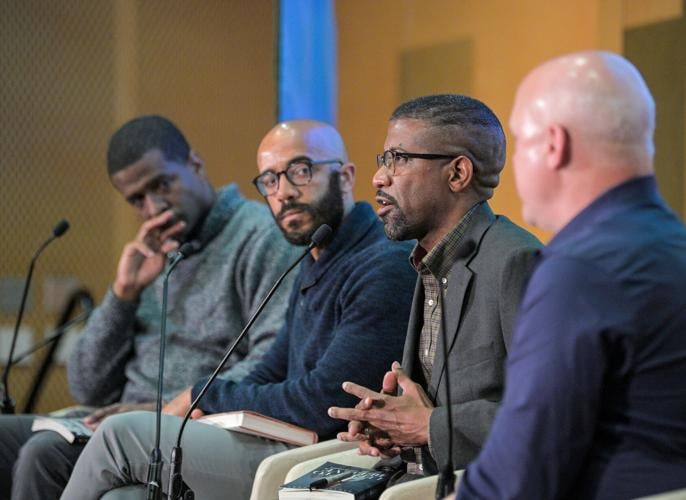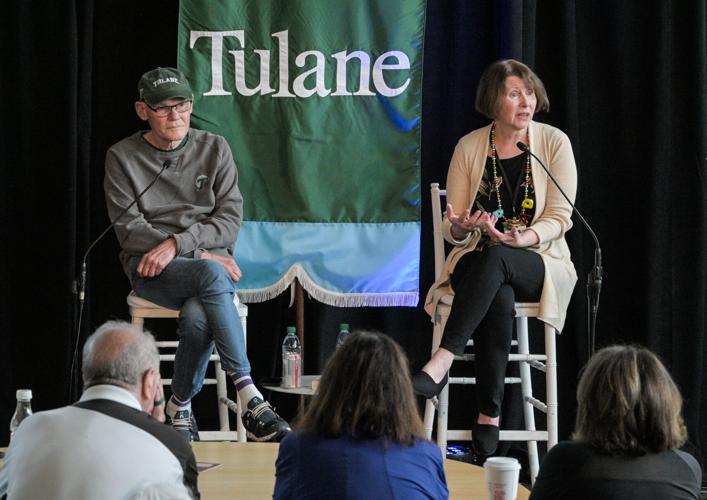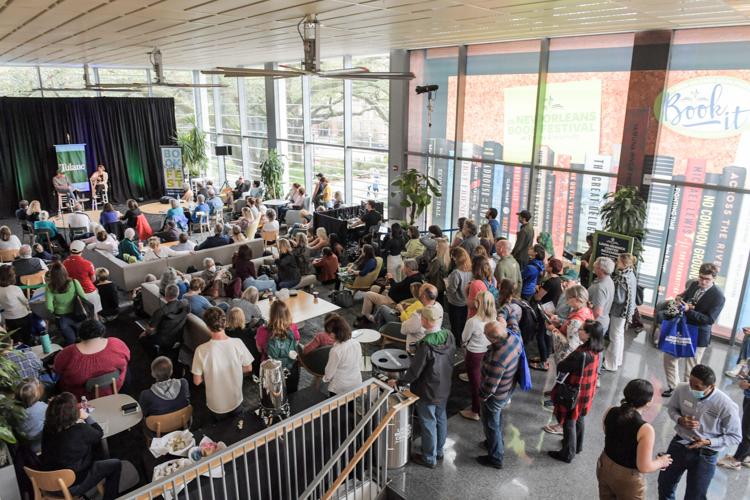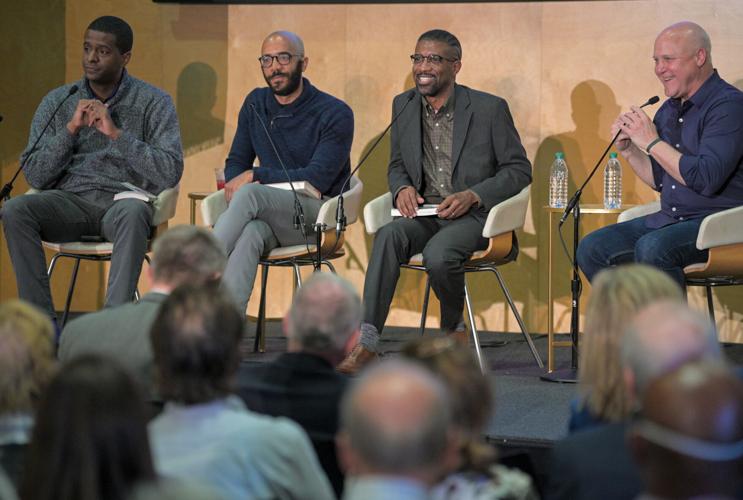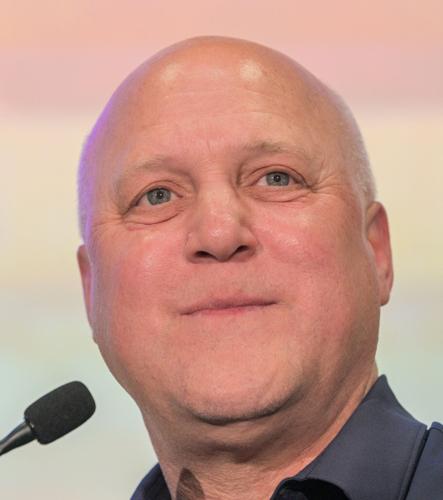The first full day of the inaugural New Orleans Book festival found crowds packing almost 30 sessions on everything from racial justice and Benjamin Franklin to New Orleans cooking and neighborhoods.
Organized by lawyer Cheryl Landrieu and author Walter Isaacson, a Tulane University history professor, the event was originally set for 2020. But it was canceled that year and in 2021 due to COVID-19 concerns.
Those concerns seemed far away Friday, as hundreds of people filled many of the sessions on Tulane's campus to listen intently to big-name speakers such as Michael Lewis, Malcolm Gladwell, Charles M. Blow, Bakari Sellers and David Brooks. Friday's events followed a Thursday opening that featured legal thriller author John Grisham and Imani Perry, a Princeton University professor of African American studies.

James Carville and Pam Fessler speak during a session titled "Carville's Cure: The Only Leprosy Colony in America," during The New Orleans Book Festival at Tulane University on Friday, March 11, 2022.
Racial and social justice were recurring themes, as was the U.S. political divide. But the sessions had something for most bibliophiles, including fiction and history. Events in the biggest room, the Kendall Cram auditorium, were full all day, with attendees often spilling into an adjacent overflow room.
Cash and Gwynn Pealer of Ocala, Florida, who were attending the festival while visiting family in town, said they were excited to see many of the authors.
"We've read and liked these books very much," Gwynn said, referencing Isaacson, Jon Meachem, John Barry and Gary Ginsburg.
In one session, panelists Clint Smith, Bakari Sellers and Jarvis DeBerry debated how the South could move past its long history of racial animus, in a frank discussion of what that past still means today.
Slavery remains "etched onto the landscape" of American society, Smith argued.

From left to right, Bakari Sellers, Clint Smith and Jarvis DeBerry speak during a panel discussion titled "Where Do We Go From Here? A Roadmap for the South," moderated by former New Orleans Mayor Mitch Landrieu, right, who now serves as infrastructure coordinator for President Joe Biden, during The New Orleans Book Festival at Tulane University on Friday, March 11, 2022.
Sellers was more blunt in his assessment: "We have not had any progressive political changes in this country without Black blood flowing in the streets," he said, adding that real police reform picked up steam only after the George Floyd murder in 2020.
But that doesn't mean Sellers is despondent. "There is nothing about this country that is irredeemable," he said later. People need to increase their empathy, he said.
During a panel on how New Orleans can remain resilient in the face of climate change, retired Army Lt. Gen. Russel Honore, now an environmental activist, offered a thunderous critique of the government's response to disasters. Honore commanded Joint Task Force Katrina, the federal government's initial emergency response to the 2005 hurricane that swamped New Orleans.
"Their job is to tell you no," he said of federal officials tasked with doling out disaster relief money. "The way the government is totally stupid. We've go to redo the government."

James Carville and Pam Fessler speak during a session titled "Carville's Cure: The Only Leprosy Colony in America," during The New Orleans Book Festival at Tulane University on Friday, March 11, 2022.
After appearing in two panels, DeBerry sat at a table in the lobby of the Lavin-Bernick Center, signing books. He was approached by Jarvis Gordon, a New Orleans native and Tulane employee who asked DeBerry to sign a copy of his collected opinion columns, "I Feel to Believe."
Gordon said he was always happy to meet another Jarvis, especially DeBerry. "I grew up reading his columns," he said.
DeBerry said he was thrilled to see such an event in New Orleans, which he said had always respected the written word.
"It's been amazing," he said. "This is one of the places where people slow down" enough to enjoy stories, he said.
CORRECTION: Earlier versions of this story incorrectly stated the year of the George Floyd murder.

